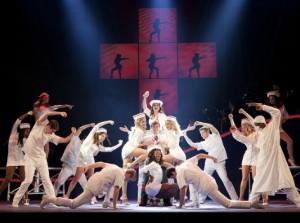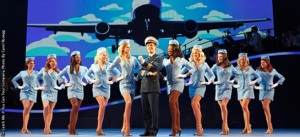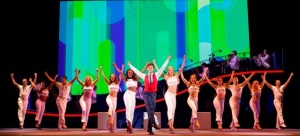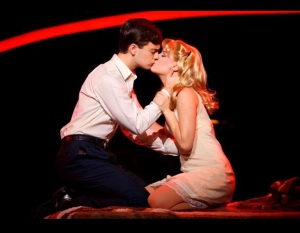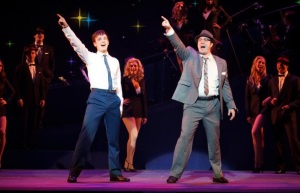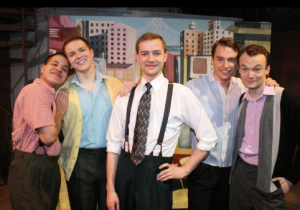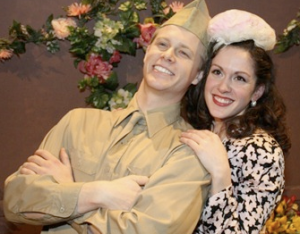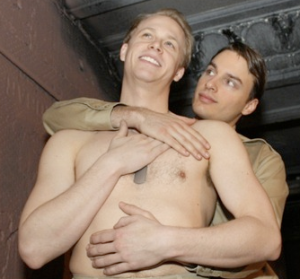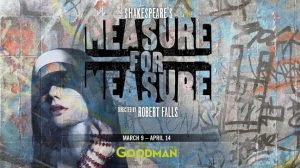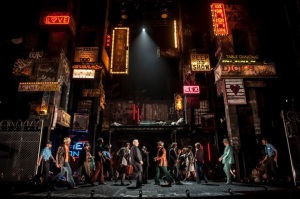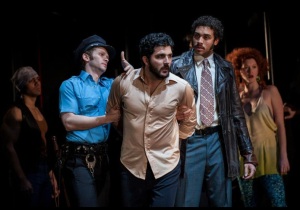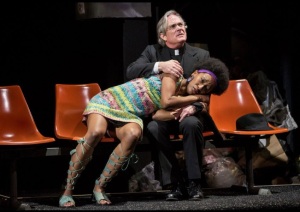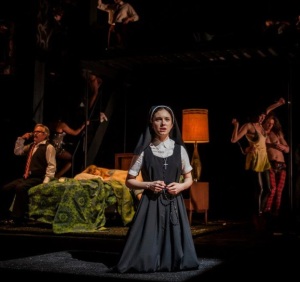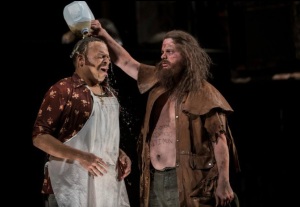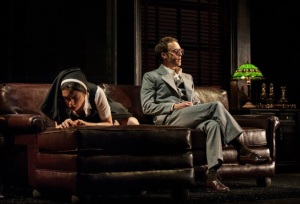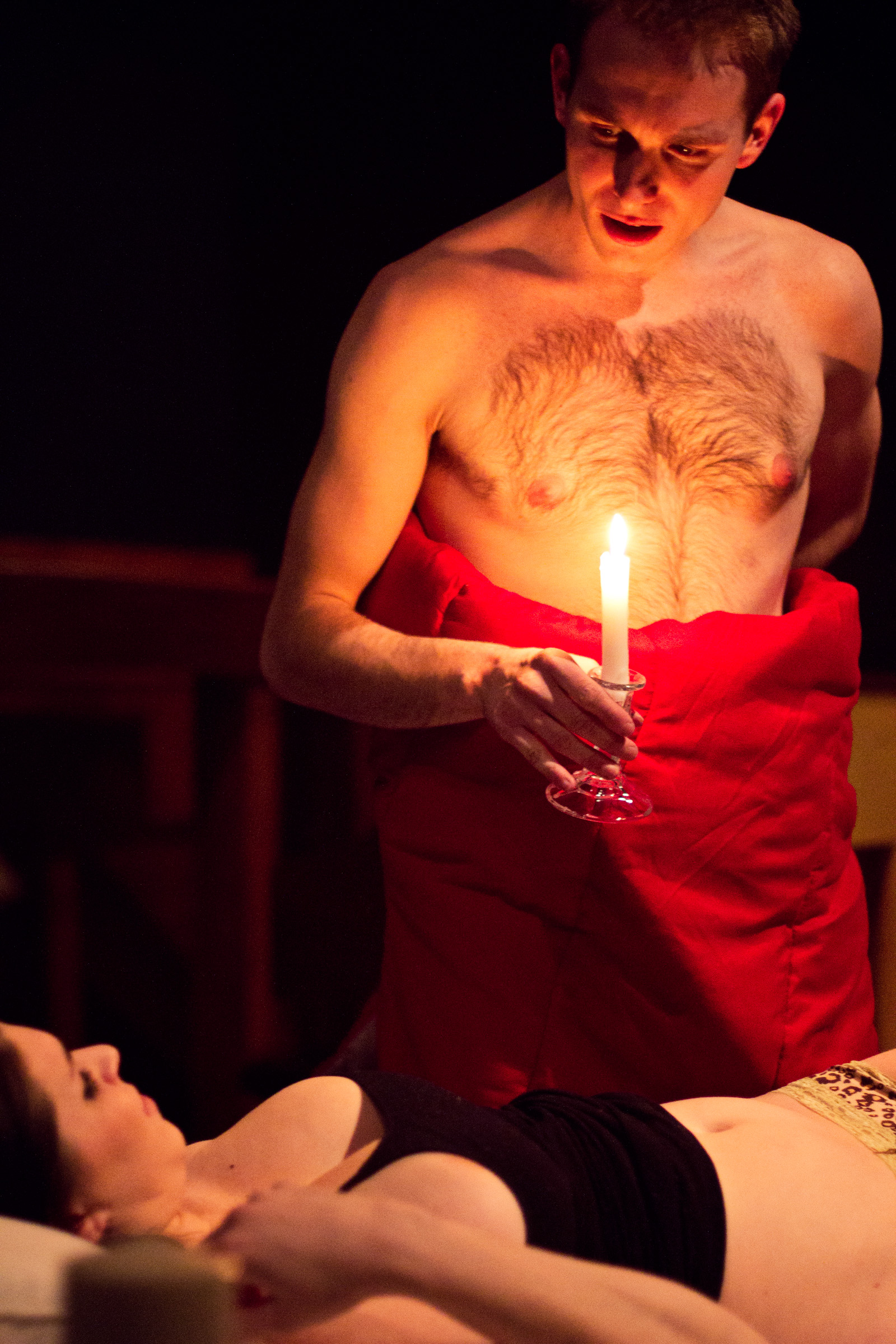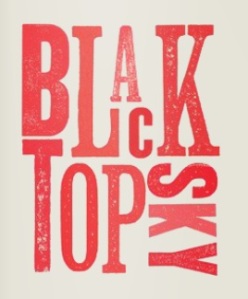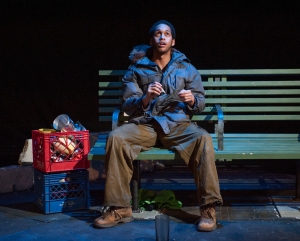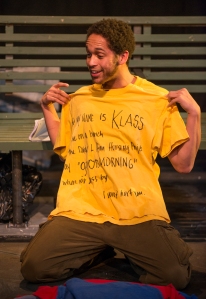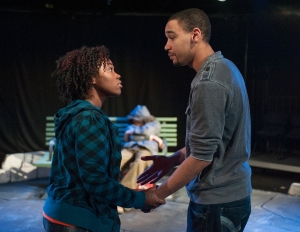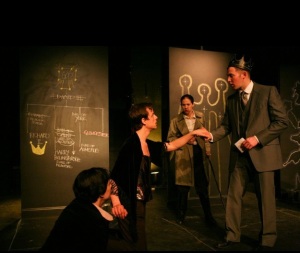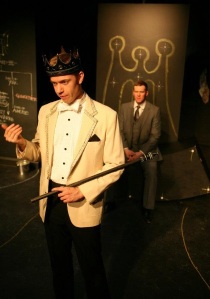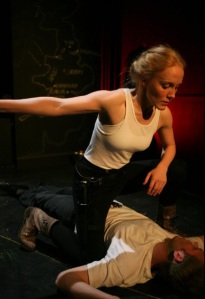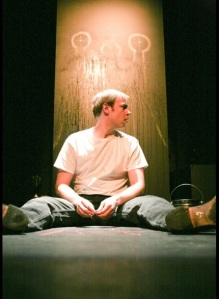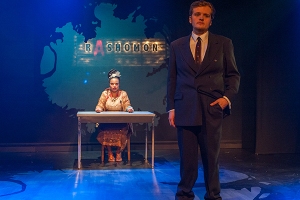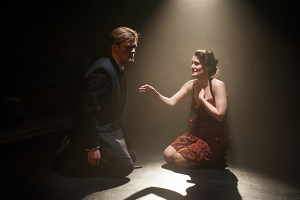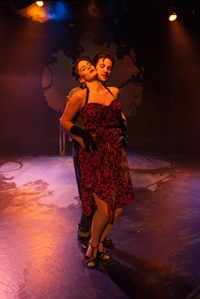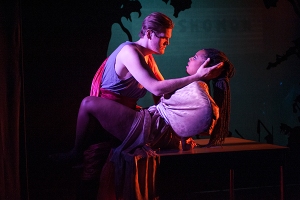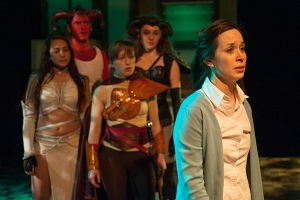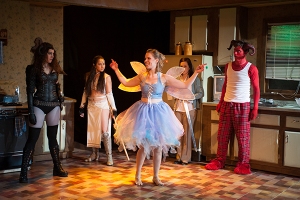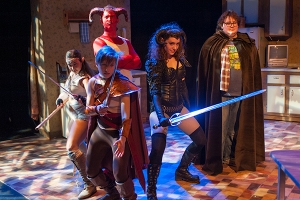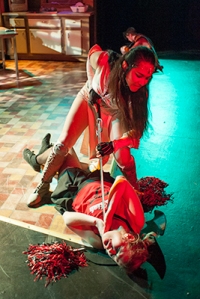Catch Me If You Can The Musical
WHAT: Catch Me If You Can The Musical
WHEN: April 2 – 14, 2013 (schedule)
WHERE: Cadillac Palace Theatre (151 W. Randolph St.)
RUNTIME: 2 Hours and 55 minutes, with a 15 minute intermission
WHO: Broadway in Chicago
PRICE: $18-85
OUR RATING: Skip It!
The latest adaptation of Frank Abagnale, Jr.’s 1980 biography, and heavily based upon the 2002 film
, Catch Me If You Can
follows the story of this con-artist through the many twists and turns of his life, from airline pilot, doctor, lawyer and so on, as he evades the authorities while tapping out a few tunes. Poorly written and musically glib, the performance is made worse by the serious lack of vocal talent on offer and the frustratingly predictable content.
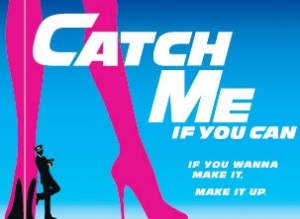 Adam: Every year, tens of musicals are written around the world with only a few seeing the lights of the Broadway stage. Some are beyond belief fantastic, while others make you wonder whether The Producers is actually coming true, with Bialystock and Bloom succeeding in making a flop. I would have preferred to sit through a fictional musical about Hitler than the asinine malarkey presented on the Cadillac Palace Theatre stage this week. An embarrassing array of mediocrity, Catch Me If You Can The Musical will leave you firmly planted in your seat, while its cast imagines soaring through the skies, only for you to wish they would come crashing down in a fireball.
Adam: Every year, tens of musicals are written around the world with only a few seeing the lights of the Broadway stage. Some are beyond belief fantastic, while others make you wonder whether The Producers is actually coming true, with Bialystock and Bloom succeeding in making a flop. I would have preferred to sit through a fictional musical about Hitler than the asinine malarkey presented on the Cadillac Palace Theatre stage this week. An embarrassing array of mediocrity, Catch Me If You Can The Musical will leave you firmly planted in your seat, while its cast imagines soaring through the skies, only for you to wish they would come crashing down in a fireball.
Stephen Anthony’s depiction of Frank Abagnale, Jr. is actually admirable. He captures some of the youthful zest of DiCaprio’s screen performance, but leaves one wishing for the tour de force of the original actor. Most disappointing was his singing range, which clearly was not appropriate for the role. His inability to hit certain notes was not only clearly apparent, but terribly distracting and unacceptable for a Broadway musical.
The chorus was also absolutely not up to Broadway calibre, and I felt sorry for an audience who had shelled out good money to be regaled by these untrained Sirens, who seemed to plunge the whole endeavor into the realms of YouTube videos that I purely watch for schadenfreude.
I left the theatre not believing what I had just seen: a complete flop that was given a standing ovation by the audience. Perhaps I got it wrong and the audience was right, but I suspect that this is once again a sign of the times: the audience wouldn’t care if it was bad or good, just so long as they see a musical, all will be well.
Alicia: There are a few aspects to this production which are commendable. One, scenic designer David Rockwell’s escalator-esque set piece upon which the entire orchestra sits (with the drums underneath). Second, the orchestra and local musicians themselves, both in being able to watch them perform (instead of hiding them in the pit) as well as the quality of their performance. Third was Bob Bonniol’s video system and content design. While some of the video was way too over the top and completely ridiculous (anywhere from flashing stars the colors of the rainbow to sunrises), some of it reminded me of the aesthetic of the last James Bond film, which was fitting for this show. But to be perfectly honest, this was the first time I have seen this kind of design content before, so I may have just been impressed by the technology more than the actual aesthetic.
Yet, if you had been there to see my reactions to this performance, you would not have guessed that I liked anything at all, being in utter disbelief in what was happening on stage. First and foremost, I felt sorry that William Ivey Long had to costume design this thing, with a script calling for women dressed up as Elmer’s Glue, India Ink and a Swiss Army Knife, and other women dressed in practically nothing. And performances from Aubrey Mae Davis (Brenda) and Allyson Tolbert (India Ink Assistant, Nurse, etc.) make you wonder how some of these performers were allowed to set foot on a Broadway stage.
The only enjoyable song by any means was “Don’t Break the Rules,” sung by Merritt David Janes (Agent Carl Hanratty) and company. Yet songs like “(Our) Family Tree” and “Fly, Fly Away” made me wonder why I didn’t leave during intermission, or why I even came at all.
Final Thoughts: Broadway is expensive. Please don’t shell out your hard-earned money for this one. If you really want to learn about Frank Abagnale, Jr., either watch the film Catch Me If You Can, read a book, or wiki it. You’ll save yourself a lot of headache, a lot of money, and a solid three hours of your life.
 P.S.: Check fraud was not the only crime being committed that night. Clearly, judging by the sight-lines, Cadillac Palace Theatre was having a little swindle of their own. A seat should not have no view of a quarter of the stage. We don’t appreciate guessing who is singing when they disappear, as it makes for an annoying experience. This is Broadway Cadillac, get your act together!
P.S.: Check fraud was not the only crime being committed that night. Clearly, judging by the sight-lines, Cadillac Palace Theatre was having a little swindle of their own. A seat should not have no view of a quarter of the stage. We don’t appreciate guessing who is singing when they disappear, as it makes for an annoying experience. This is Broadway Cadillac, get your act together!
